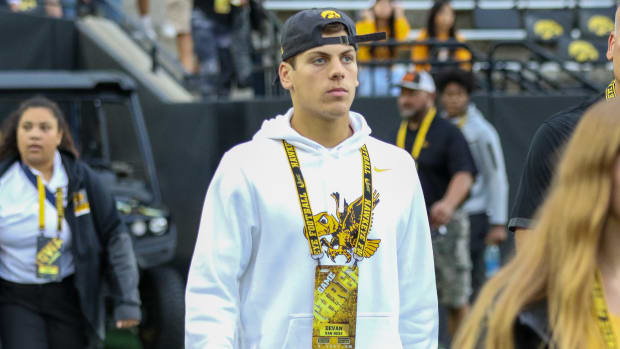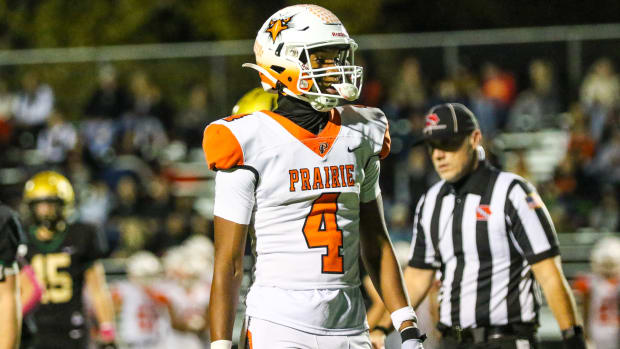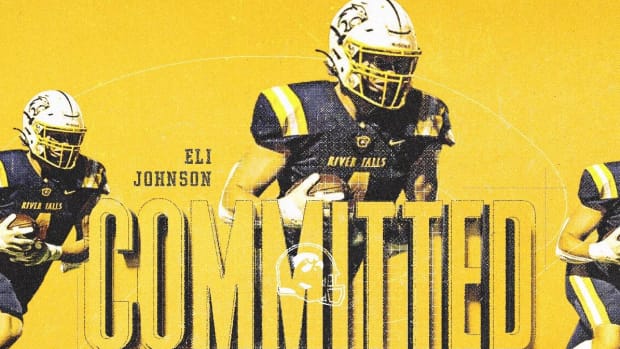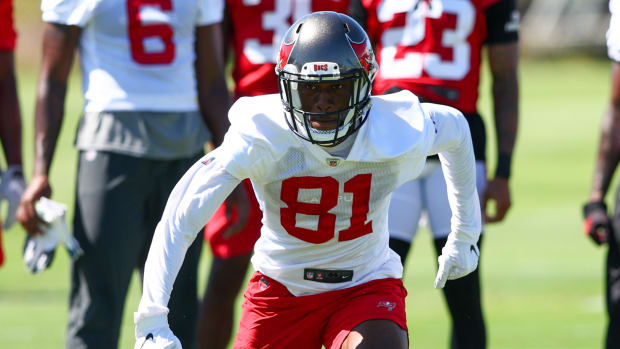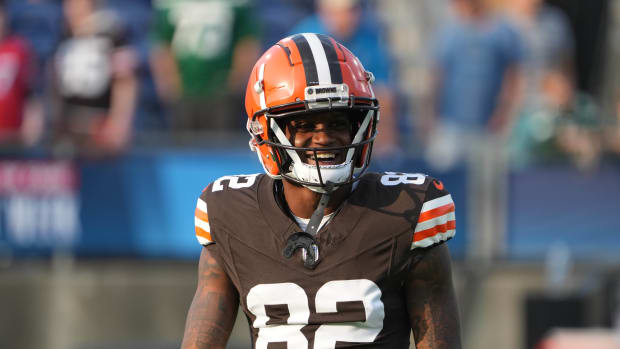Within Iowa's Program, The Ball Has To Keep Moving Forward
Twenty-six pages of a report and 76 minutes of a press conference aren't going to cure what is wrong inside of Iowa's football program.
They're just steps in a process that coach Kirk Ferentz said he's going to make sure continues.
He had better follow through on those promises he's been making since early June.
The lengthy independent review into the allegations of racial disparities within the program was released on Thursday morning, and Ferentz and athletics director Gary Barta talked about it during a long press conference at Carver-Hawkeye Arena in the afternoon.
The review, conducted by law firm Husch Blackwell, detailed the allegations made by former players in early June that led to the departure of strength and conditioning coach Chris Doyle and rattling the usually steady Ferentz. There wasn't a lot new that we didn't know, there was just more information.
But there was one part in the review, on one of the last pages, that showed what still remains in this process of repairing the culture that Ferentz thought was so healthy just a few months ago.
Current players, the report read, said the changes brought about since the original allegations came out made for a better program, but were "cautiously optimistic" that the improvement would continue.
The apologies made by Ferentz and Barta over the summer are a start, but on Thursday, just like the other times we've met with them, there is still much work ahead.
Ferentz has the team's leadership group, and he's formed an advisory committee of former players to make their own recommendations — both groups, Ferentz said, should "hold my feet to the fire."
"Let's make sure we're staying on track," Ferentz said. "Let's make sure we are not having five meetings and then dismissing it, that type of thing. I think we've all learned a great deal in the last two months, but it can't be yesterday's news. We need to keep the dialogue going."
Ferentz, in his interviews with the media, continues to recall the June 8 team meeting on the first day of voluntary workouts. The raw emotions are something that has resonated with the coach and his players, and indicative of his failure to see a problem.
That can't happen again, and Ferentz knows it.
"I'll predict this — if we're doing our jobs right and doing them better, we're not going to have the kind of meeting we had on June 8," Ferentz said. "But that was a significant meeting, it was powerful and very impactful, and it got the ball moving forward fast, which was great."
The ball hasn't gotten out of control, but now it's up to Ferentz and his staff, and Barta, to make sure there is still that progress.
To do that, though, they must better themselves. Thinking all is well is what got them into this.
It was late in that press conference when Barta was asked how he and Ferentz could not see the problems within the program.
"Again, I go back to, were we asking the right questions?" Barta said. " Were they comfortable, even though they were anonymous in the surveys, being frank with us? The answer is probably not. So we've got to find a better way, as Kirk was saying, to get people to feel comfortable speaking freely, and we have to make sure that they have a place they can go if they're not comfortable talking to me, if they're not comfortable talking to Kirk or anybody on his staff.
"We just have to make sure, one, we're listening, and two, they have a place to go if they don't think we are listening. I thought things were improving. I was wrong. We've acknowledged that, and we're working hard to move forward."
Asked if there was systemic racism within the program, Barta said, "I'm not an expert in what systemic means. Did we have a culture that was not fair? Yeah. Yeah, I believe that. I'm not ready to use a term for it, but we have to have an environment where everybody feels like they're being treated fairly and equitably, and we've learned that that wasn't happening across the board."
The review did indicate confidence in Ferentz as a leader, and Barta reiterated that.
"As I've described before, I have had a chance to work with Kirk now for 15 years, so that's a starting point," Barta said. "I've watched him make changes when he's needed to make changes during my time. I've listened and we've had several conversations about his desire to change, and so in this case (he) immediately took responsibility, immediately started working through and finding out where we needed to head, and then as I mentioned at the outset, I believed this would be the case, but I was very pleased to see that the conversations with former and current players confirmed what I believed, that Kirk is a leader that can move forward with this program."
Ferentz has admitted to his "blind spots" in his program. They're long gone, he says, and they have to be.
"I think if there's anybody in our program right now that's not changed from two months ago, then they're just not paying attention," Ferentz said. "Like, they're not paying attention."
His players are paying attention.
It's why they are "cautiously optimistic."

